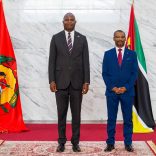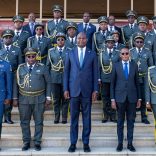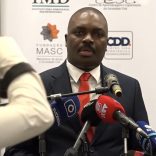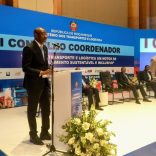Cabo Delgado: Three new district administrators take office
Frelimo and Renamo diverge over district administrators – AIM report

A new problem has sprung up in the path of the constitutional amendments on decentralisation now before the Mozambican parliament, the Assembly of the Republic.
The new difficulty, never before raised publicly, concerns who should appoint district administrators in the gap between approval of the constitutional amendments and the first elections of district assemblies, scheduled for 2024.
Since the question is not so much as mentioned in the consensus between the government and the rebel movement Renamo, unveiled in February by President Filipe Nyusi, it was assumed that the current arrangement, whereby the Minister of State Administration appoints district administrators, would remain in force until 2024.
But Renamo has now objected, and wants the provincial governors to appoint the administrators. Obviously Renamo regards this as a way of appointing administrators from its own ranks without going through a district election.
The first governors who are elected (rather than appointed by the President) will take office after the 2019 general elections. Renamo expects to win the provincial assembly elections in several central provinces, and in these cases the governor would certainly be a Renamo member.
Under the Renamo proposal, the Renamo governor would then simply appoint Renamo administrators in all the districts in that province. Currently the provincial assemblies with a Renamo majority are in Sofala, Zambezia and Tete.
The parliamentary group of the ruling Frelimo Party has opposed the Renamo move. With no compromise possible, the Frelimo and Renamo groups could only agree to refer the matter to their top leaderships – President Nyusi and Renamo leader Afonso Dhlakama.
This impasse came to light at a ceremony on Tuesday when the leaderships of the three parliamentary groups were signing a memorandum of understanding on progress so far on the constitutional amendments.
The main advance is an agreement between Frelimo, Renamo and the Mozambique Democratic Movement (MDM) that future elections of municipal, provincial and district assemblies will be on a “head of the list” basis. That means that each party or group competes with a list of candidates for the Assembly and the head of the list of whichever party wins will become the mayor, provincial governor or district administrator.
The initial proposal from Nyusi and Dhlakama was that the winning party in any assembly can choose whichever assembly member it likes for the top job. This was widely regarded as unconstitutional, since it transferred power away from the electorate and into the hands of the political parties. When voting for the assemblies, the voters would have no idea who they were choosing as mayor, governor or administrator.
The “head of the list” system solves this problem and, although there might only be one ballot paper, it would serve for electing both the assembly and the mayor, governor or administrator.
The head of the Assembly’s Legal and Constitutional Affairs Commission, Edson Macuacua, said “This means that citizens will go to vote, knowing who the candidate for mayor is. This system of election is also extended to the governors and the administrators”.
Another problem was that the Constitution itself states that proposed amendments must be submitted to parliament at least 90 days before they are debated. If this provision were obeyed, the amendments could not be debated in this parliamentary sitting, which means they would not be approved in time for the municipal elections scheduled for 10 October.
The way round this, Macuacua said, is for the Assembly of the Republic to assume “extraordinary powers of constitutional amendment”. Since all three parliamentary groups have accepted this, it will certainly happen and paves the way for the amendments to be passed, probably in May, although the memorandum of understanding mentions no date.












Leave a Reply
Be the First to Comment!
You must be logged in to post a comment.
You must be logged in to post a comment.